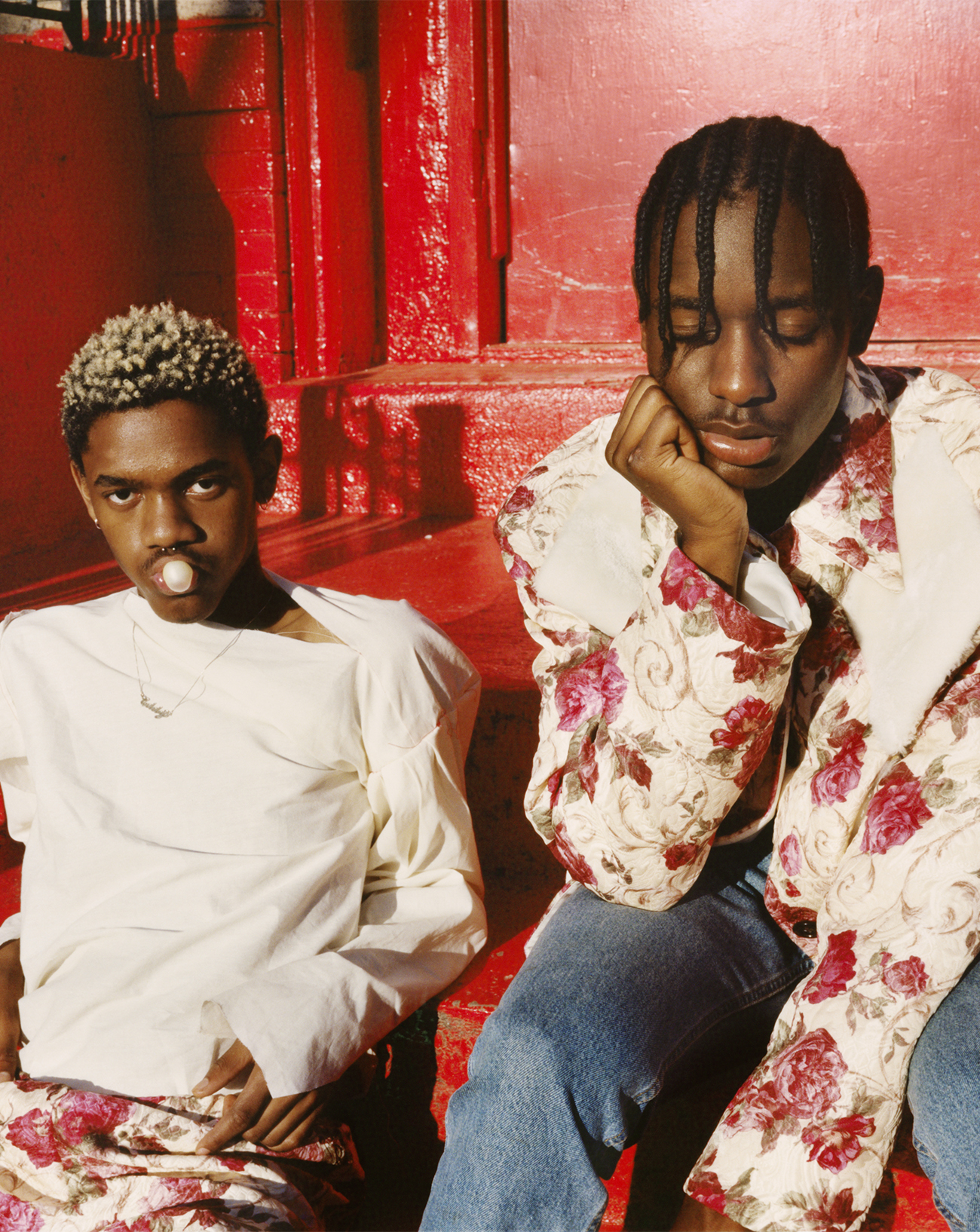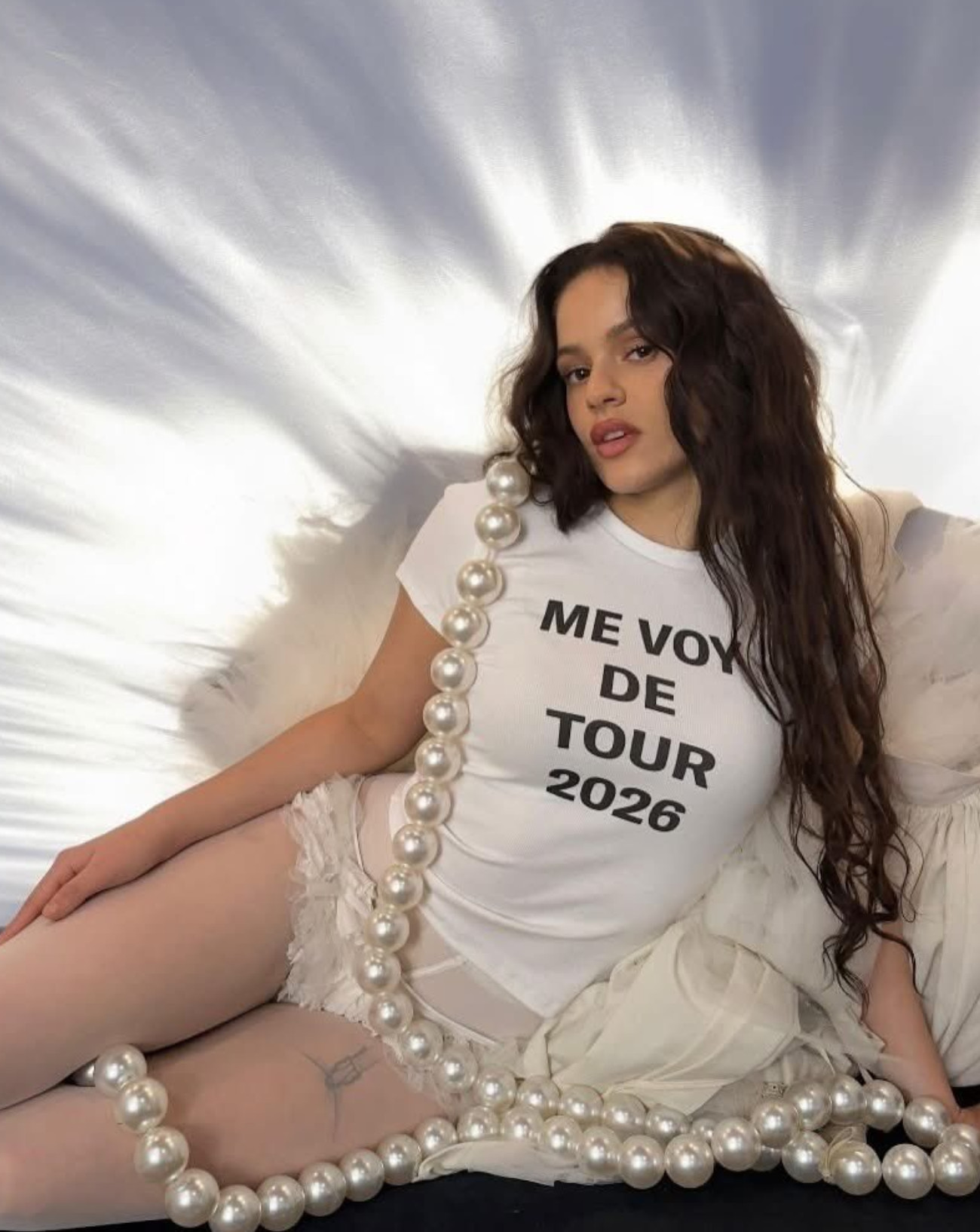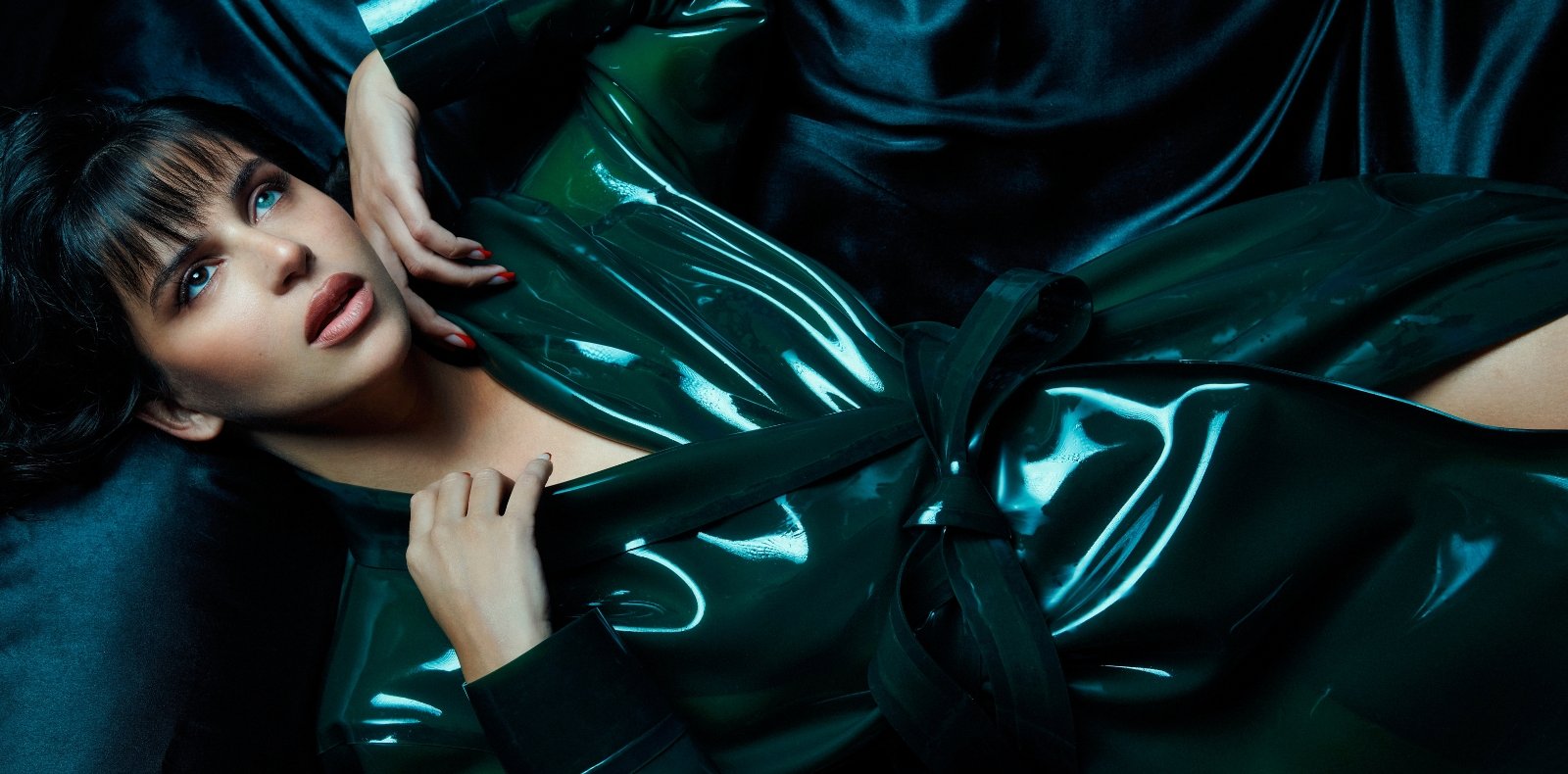
30
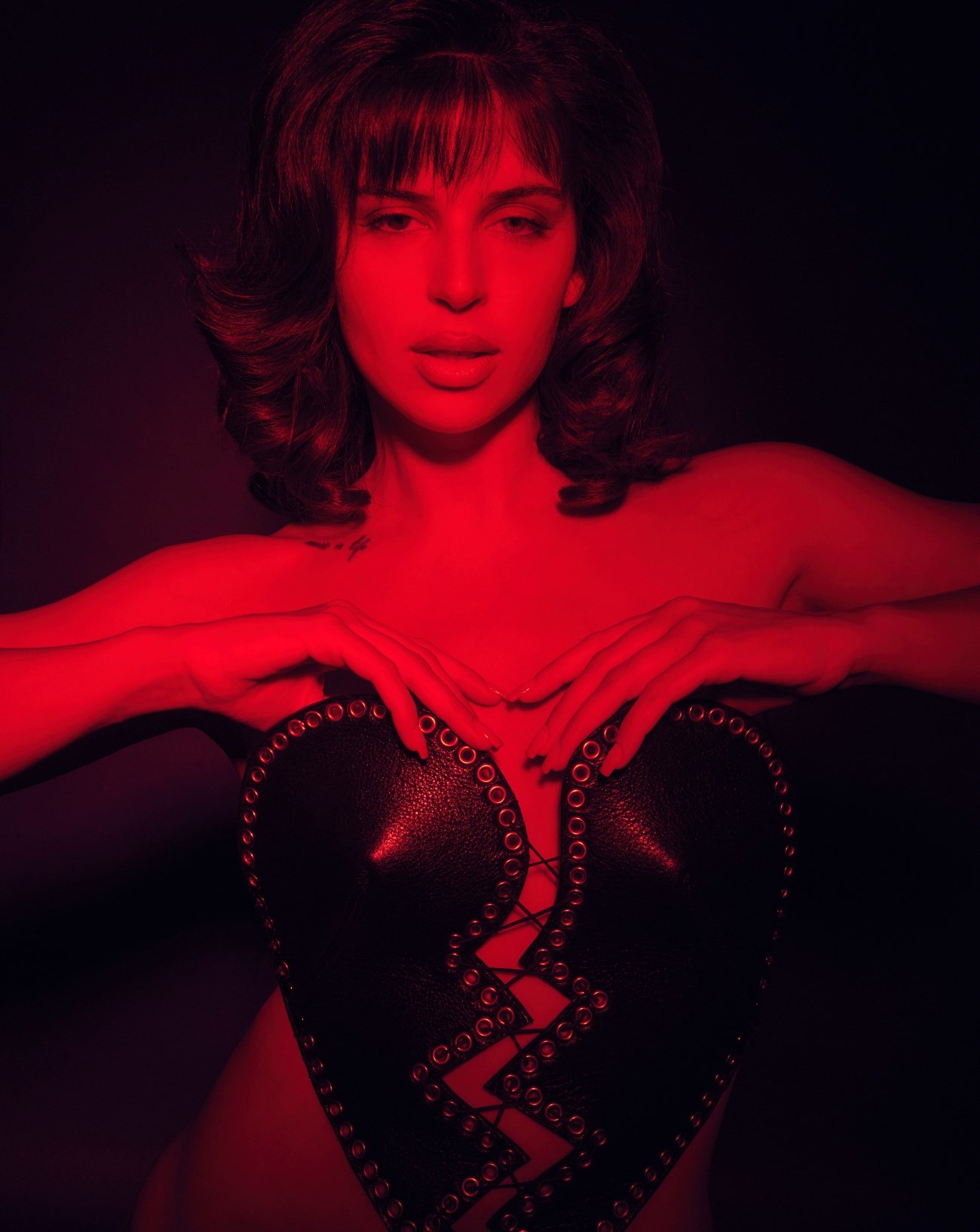
30
Confidences of Nathy Peluso, the radical and scandalous Argentinian performer
The 29-year-old Argentinian singer, whose skilful blend of reggaeton, salsa, Colombian cumbia and hip-hop sounds had her nominated eleven times at the Latin Grammy Awards, has enjoyed an irresistible rise since her debut album, Esmeralda, released in 2017. Numéro has met the young artist, who is a big fan of gangster films and Brian De Palma-like, sultry atmospheres that pervade her aesthetic. On February 15th, 2025, she will be performing at Salle Pleyel in Paris.
Interview by Alexis Thibault,
photos by Sofia Sanchez & Mauro Mongiello.
Published on 30 September 2024. Updated on 27 October 2024.
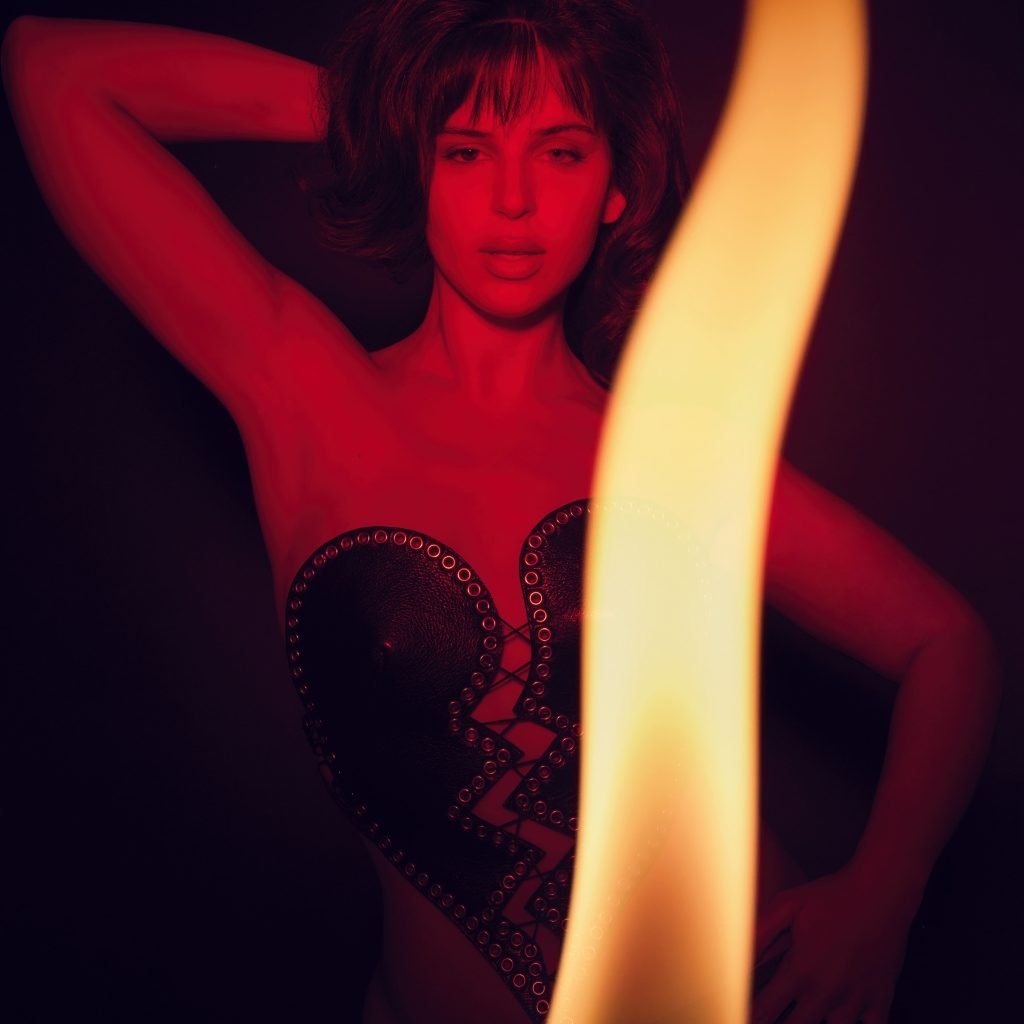
Grasa, the tragicomic album by the scandalous Nathy Peluso
Nathy Peluso’s proudest work to date is beyond any doubt Grasa. A sultry musical medium-length film that introduces her eponymous album, whose release has taken the world by storm in May 2024. The record stages the incredible 29-year-old performer, who lets herself have every musical eccentricity she desires, from reggaeton and salsa to Colombian cumbia and blistering hip-hop sounds. On screen, the artist appears at times as a femme fatale wearing a garter belt and having a smoke after sex, or as an irresistible, sensual dancer suddenly drawing a gun and pointing it at the camera… The tone is set.
Nominated eleven times at the Latin Grammy Awards, the musician from Luján, a city close to Buenos Aires in Argentina, has gradually made a name for herself since her official debut in 2017, the year her first compilation, Esmeralda, was released. She is now a triumphant, contemporary gladiator, who conveys evocative lyrics and proudly shows off her body, without it ever becoming a commercial pretext, while posting photos of herself eating up a slice of dripping pizza on social media.
In Spanish, the word grasa can mean ‘bad taste’, ‘vulgar’ or ‘unrefined’. Yet, Nathy Peluso is none of these things. In fact, she is quite the opposite. In this new brilliant opus, released four years after her first studio album Calambre, the former dancer and gymnast explores a myriad of genres and stands as the unofficial spokesperson for a much needed and welcomed empowerment of women. This tragicomic album puts the singer and actress with hawkish character under the spotlight, evoking one by one the crises of creation and the ransom of fame. Nathy Peluso will be in Paris next year to perform at Salle Pleyel on February 15th, 2025. Interview.
Interview with Nathy Peluso
Numéro: How was little Nathy Peluso at school?
Nathy Peluso: I was the weird little girl. I didn’t have any real friends, but people seemed to like me, at least that’s what I thought. Maybe I wasn’t really the girl you wanted to invite into your home…
Has that little girl changed a lot since then?
To this day, I still write about everything that comes through my mind! Even though I often feel pain, I still feel very happy. It’s comforting in a sense because it means that I’m officially a strong woman. Maybe that’s why I often dance alone in front of my mirror. I think I’m in love with myself. [Laughs]
What images does your music conjure up for you?
A lot of colours… Blue, red, a very strong green. If I were to draw my music, it would be a very expressive artwork made of vibrant colours, with a very particular blue hue, reminiscent of Joan Miró and Mark Rothko.

What images does your music conjure up for you?
A lot of colours… Blue, red, a very strong green. If I were to draw my music, it would be a very expressive artwork made of vibrant colours, with a very particular blue hue, reminiscent of Joan Miró and Mark Rothko.
Do you keep a close eye on new musical releases?
Not really to be honest. I mainly listen to vintage artists like Frank Sinatra or Nina Simone. I don’t really have an explanation for that. I also listen to a lot of hip-hop artists, like Lauryn Hill, Missy Elliot and Kendrick Lamar.
One can hear several gunshots recorded on your album. Is this choice a reflection of the different forms of violence you have been confronted with in the past?
No, not at all. But you know, I’m witnessing violence every day, and so do you. Whether you’re walking in the street or scrolling online. Don’t worry, I’m not a violent woman at all, quite the opposite. I’m a very peaceful person. I am just fascinated by Mafia and gangster movies and I sometimes find a certain kind of beauty in violence when depicted on screen – through an artistic lens, of course. I love Martin Scorsese, Quentin Tarantino, David Lynch and Brian De Palma. I would have loved to dive into the universe of Scarface [1983], for the sets, for the looks of the characters, just for fun.
For most of your audience, Real is one of the best tracks on your album Grasa. How did you write it?
It’s also my favourite song! It talks about love, violence and danger… The song was born as I was looking for a cumbia rhythm, a traditional Colombian folk dance. The first tries were too… obvious. So, with my team, we decided to change the roots of the song while keeping its sonic identity intact. By using a different drum kick, an irresistible groove suddenly emerged. Real moved closer to the dancehall genre in the end.
What made you decide to collaborate with British producer Blood Orange (Devonté Hynes) for the track El día que perdí mi juventud?
I’m a huge fan of Devonté Hynes’ work! When we met, we immediately felt the need to make music together. So I flew to London to join him. Once in the studio, I remembered a song I’d written in Spain, inspired by the trova rosarina, a musical and poetic movement that emerged in Rosario, Argentina, in the 1980s. I wanted something both unique and specific – a song of revolt combining folk and Argentine rock music. I’d never composed anything like that before…
Do you draw on various cultures and heritages so that your music doesn’t sound like the ones made by your counterparts?
I don’t create songs trying to avoid sounding like other artists. I’m more interested in what makes me unique as an artist, in my own signature. You have to dig deep to find what is uniquely yours. La presa is a salsa song, the best I’ve ever created in my entire life. I wrote it for one reason only: because I can and because I do what I want!
According to you, a good song is one that will stand the test of time. Are you worried people may eventually forget about you?
It’s always been very important for me to come up with something that people will remember. I even hope that, in the future, people will associate my songs with a specific moment in their lives. I picture my musical work as if I was running a communications agency, whose goal is to create a lasting connection with people. But no, I’m not afraid of being forgotten. I’m sure that my friends will remember me.
In your music videos, you often play the role of the femme fatale delivering incredibly sensual dance moves. Was it always natural for you to stage your own body?
Yes, I’ve always been fascinated by the physical dimension of the human being. I actually studied theatre for four years and learnt exercises that allow you to develop, express yourself and keep yourself in shape artistically speaking. I learnt how to tell stories and, above all, how to improvise. There’s never any choreography in my videos. Improvisation has become my leitmotif. Expressing yourself with your body is a question of energy, it doesn’t necessarily have to be an aesthetic proposition.
What are the most difficult things you have had to overcome since the start of your career?
You’re never taught how to be an artist, and you’re certainly never taught how to take criticism, while still maintaining an unshakeable self-confidence, especially as a woman in the music industry. It can be really hard sometimes. I don’t feel like I’m particularly subversive. I’m more of a rebel. My radicalism isn’t a choice, it’s a way of being. People always try to fit you into a framework, so that you’re easier to control. Believe me, I will never conform.
Grasa (5020 Records/Sony Music Spain) by Nathy Peluso, available now.
Live performance in Paris at Salle Pleyel on February 15th, 2025.
Translation by Emma Naroumbo Armaing.






